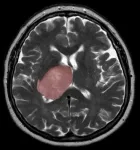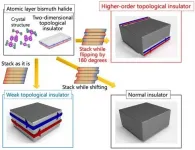(Press-News.org) ANN ARBOR, Michigan -- Michael Green, M.D., Ph.D., noticed that when his patients had cancer that spread to the liver, they fared poorly - more so than when cancer spread to other parts of the body. Not only that, but transformative immunotherapy treatments had little impact for these patient.
Uncovering the reason and a possible solution, a new study, published in Nature Medicine, finds that tumors in the liver siphon off critical immune cells, rendering immunotherapy ineffective. But coupling immunotherapy with radiotherapy to the liver in mice restored the immune cell function and led to better outcomes.
"Patients with liver metastases receive little benefit from immunotherapy, a treatment that has been a game-changer for many cancers. Our research suggests that we can reverse this resistance using radiation therapy. This has potential to make a real difference in outcomes for these patients," says Green, assistant professor of radiation oncology at Michigan Medicine and corresponding author on the paper.
A multidisciplinary team from the University of Michigan Rogel Cancer Center looked at data from 718 patients who had received immunotherapy at the center. Patients had a variety of cancer types, including non-small cell lung cancer, melanoma, urothelial cancer and renal cell cancer, which had spread to different organs, including the liver and lungs.
Repeatedly, those with liver metastases had worse responses to immunotherapy. The issue was not just in the liver either: these patients had more cancer throughout their bodies, compared to similar patients whose cancer had spread but not to the liver.
"The liver is initiating a systemic immunosuppressive mechanism. The mechanism happens in the liver, but we see the systemic impact throughout the body," says corresponding study author Weiping Zou, M.D., Ph.D., Charles B. de Nancrede Professor of Surgery, Pathology, Immunology and Biology at the University of Michigan.
The liver is one of the most common site to which cancer metastasizes. It's known to interfere with immune response in autoimmune diseases, viral infections and organ transplants by suppressing certain critical immune cells.
This was playing out in metastatic cancer as oncologists observed a lack of immune response. Green notes that patients with liver metastases who received chemotherapy or targeted therapies did not have worse outcomes compared to those with other types of metastases. "It's unique to immunotherapy," he says.
Looking within the microenvironment of the liver metastases, researchers saw that the tumors were siphoning off the T cells - immune cells that should have been working to attack the cancer. Not only were the T cells being eliminated in the liver, but this was also creating an immune desert throughout the body. As a result, the immune system could not be activated to fight tumors at any sites.
Using mice with liver metastases, researchers delivered radiation therapy directly to the tumors in the liver. This stopped T cell death. With the T cells restored, an immune checkpoint inhibitor was then able to activate the immune system to eliminate the cancer throughout the body, on par with results seen in non-liver metastases.
"It's always a challenge to identify a novel mechanism of immune suppression and find a way to address it. With these promising results, we are now looking to open clinical trials in this space to better understand the mechanisms at play in human tumors," Green says.
INFORMATION:
Clinical trials are currently being developed but are not yet available. For information about clinical trials open at the Rogel Cancer Center, visit http://www.rogelcancercenter.org/clinical-trials.
Additional authors:
Jiali Yu, Shasha Li, Yilun Sun, Sara Journey, Jae Eu Choi, Syed Monem Rizvi, Angel Qin, Jessica F. Waninger, Xueting Lang, Zoey Chopra, Issam El Naqa, Jiajia Zhou, Yingjie Bian, Long Jiang, Alangoya Tezel, Jeremy Skvarce, Rohan K. Achar, Merna Sitto, Benjamin Rosen, Fengyun Su, Sathiya Narayanan, Xuhong Cao, Shuang Wei, Wojciech Szeliga, Linda Vatan, Charles Mayo, Meredith Morgan, Caitlin Schonewolf, Kyle Cuneo, Ilona Kryczek, Vincent Ma, Leslie Fecher, Christopher Lao, Theodore S. Lawrence, Nithya Ramnath, Fei Wen, Arul Chinnaiyan, Marcin Cieslik, Ajjai Alva
Funding:
National Cancer Institute grants CA248430, CA217648, CA123088, CA099985, CA193136, CA152470, 1UM1HG006508, U01CA216440, P30CA46592
Disclosure: None
Reference:
Nature Medicine, doi: 10.1038/s41591-020-1131-x; published Jan. 4, 2021
Resources:
University of Michigan Rogel Cancer Center,
http://www.rogelcancercenter.org
Michigan Health Lab,
http://www.MichiganHealthLab.org
Michigan Medicine Cancer AnswerLine, 800-865-1125
For more information, contact:
Nicole Fawcett,
nfawcett@umich.edu
734-764-2220
MADISON, Wis. -- Deforestation dropped by 18 percent in two years in African countries where organizations subscribed to receive warnings from a new service using satellites to detect decreases in forest cover in the tropics.
The carbon emissions avoided by reducing deforestation were worth between $149 million and $696 million, based on the ability of lower emissions to reduce the detrimental economic consequences of climate change.
Those findings come from new research into the effect of GLAD, the Global Land Analysis and Discovery system, available on the free and interactive ...
COLUMBUS, Ohio - Scientists have developed a machine-learning method that crunches massive amounts of data to help determine which existing medications could improve outcomes in diseases for which they are not prescribed.
The intent of this work is to speed up drug repurposing, which is not a new concept - think Botox injections, first approved to treat crossed eyes and now a migraine treatment and top cosmetic strategy to reduce the appearance of wrinkles.
But getting to those new uses typically involves a mix of serendipity and time-consuming and expensive randomized clinical trials to ensure that a drug deemed effective for one disorder will be useful as a treatment for something else.
The Ohio State University researchers ...
The healing process that follows a brain injury could spur tumour growth when new cells generated to replace those lost to the injury are derailed by mutations, Toronto scientists have found. A brain injury can be anything from trauma to infection or stroke.
The findings were made by an interdisciplinary team of researchers from the University of Toronto, The Hospital for Sick Children (SickKids) and the Princess Margaret Cancer Centre who are also on the pan-Canadian Stand Up To Cancer Canada Dream Team that focuses on a common brain cancer known as glioblastoma.
"Our data suggest that the right mutational change in particular cells in the brain could be modified by injury to give rise to a tumour," says Dr. Peter Dirks, Dream ...
Spintronics refers to a suite of physical systems which may one day replace many electronic systems. To realize this generational leap, material components that confine electrons in one dimension are highly sought after. For the first time, researchers created such a material in the form of a special bismuth-based crystal known as a high-order topological insulator.
To create spintronic devices, new materials need to be designed that take advantage of quantum behaviors not seen in everyday life. You are probably familiar with conductors and insulators, which permit and restrict the flow of electrons, respectively. ...
Some racial and ethnic groups suffer relatively more often, and fare worse, from common ailments compared to others. Prostate cancer is one disease where such health disparities occur: risk for the disease is about 75 percent higher, and prostate cancer is more than twice as deadly, in Blacks compared to whites. Yet whites are often overrepresented as research participants, making these differences difficult to understand and, ultimately, address.
With this problem in mind, scientists at the USC Center for Genetic Epidemiology and the Institute for Cancer Research, London, ...
Last year, more than fifty years after initial theoretical proposals, researchers in Pisa, Stuttgart and Innsbruck independently succeeded for the first time in creating so-called supersolids using ultracold quantum gases of highly magnetic lanthanide atoms. This state of matter is, in a sense, solid and liquid at the same time. "Due to quantum effects, a very cold gas of atoms can spontaneously develop both a crystalline order of a solid crystal and particle flow like a superfluid quantum liquid, i.e. a fluid able to flow without any friction" explains Francesca Ferlaino from the Institute for Quantum Optics and Quantum Information of the Austrian Academy of Sciences and the Department of Experimental Physics at the ...
Research from the University of Kent's Durrell Institute of Conservation and Ecology (DICE) has found that elephant ivory is still being sold on the online marketplace eBay, despite its 10-year-old policy banning the trade in ivory.
The trafficking of wildlife over the internet continues to be a problem, with the detection of illegal activity being challenging. Despite efforts of law enforcement, the demand for illegal wildlife products online has continued to increase. In some cases vendors have adopted the use of 'code words' to disguise the sale of illicit items.
Sofia Venturini ...
PORTLAND, Ore. - Researchers at Oregon State University have found that a few organisms in the gut microbiome play a key role in type 2 diabetes, opening the door to possible probiotic treatments for a serious metabolic disease affecting roughly one in 10 Americans.
"Type 2 diabetes is in fact a global pandemic and the number of diagnoses is expected to keep rising over the next decade," said study co-leader Andrey Morgun, associate professor of pharmaceutical sciences in the OSU College of Pharmacy. "The so-called 'western diet' - high in saturated fats and refined sugars - is one of the primary factors. But gut bacteria have an important role to play in modulating the effects of diet."
Formerly known as adult-onset diabetes, type 2 diabetes is a chronic condition ...
To make kefir, it takes a team. A team of microbes.
That's the message of new research from EMBL and Cambridge University's Patil group and collaborators, published in Nature Microbiology today. Members of the group study kefir, one of the world's oldest fermented food products and increasingly considered to be a 'superfood' with many purported health benefits, including improved digestion and lower blood pressure and blood glucose levels. After studying 15 kefir samples, the researchers discovered to their surprise that the dominant species of Lactobacillus ...
CORVALLIS, Ore. - Forest loss declined 18% in African nations where a new satellite-based program provides free alerts when it detects deforestation activities.
A research collaboration that included Jennifer Alix-Garcia of Oregon State University found that the Global Land Analysis and Discovery System, known as GLAD, resulted in carbon sequestration benefits worth hundreds of millions of dollars in GLAD's first two years.
Findings were published today in Nature Climate Change.
The premise of GLAD is simple: Subscribe to the system, launch a free web application, receive email alerts when the GLAD algorithm detects deforestation going on and then take action to save forests.
GLAD, launched in 2016, delivers alerts created ...




